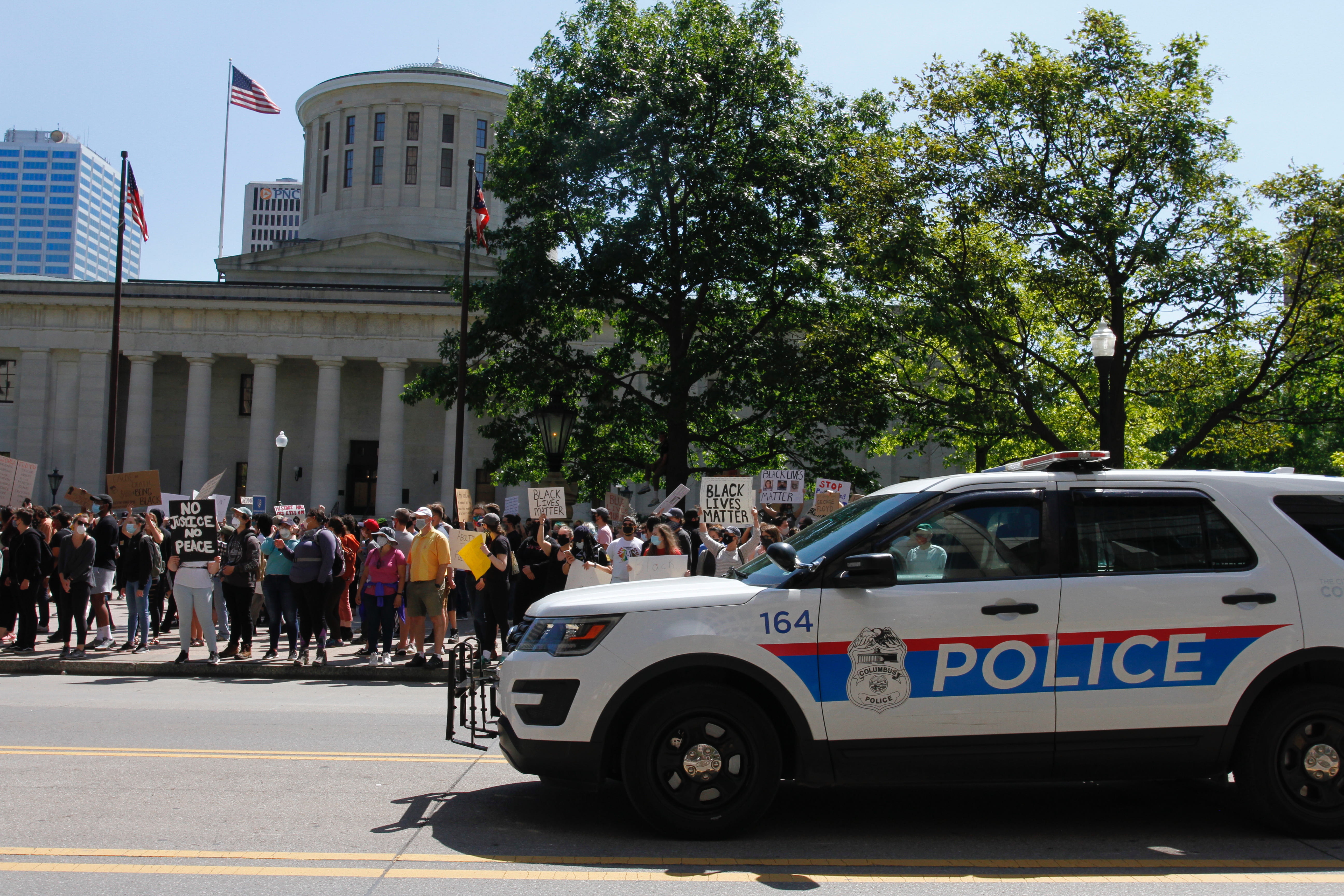
A team made up of Ohio State and other researchers is gathering public opinion and testimony about how Columbus handled protests over the summer against police violence. Credit: Sarah Szilagy | Campus Editor
After a summer of protests against police violence and racial injustice, a team including Ohio State researchers is looking to document people’s experiences of police misconduct and other interactions with city officials during the protests.
These testimonies will contribute to a review and report for Columbus City Council of the city’s response to the protests — ranging May 28 to July 19 — according to a Nov. 12 press release. The report will include documentation of participant interviews, an analysis of how Columbus handled the protests this past summer, as well as any recommendations for how the city can improve for future protests, Carter Stewart, a special investigative researcher for the study, said.
“We are trying to connect with as many community members and community leaders as possible to explain what we’re doing,” Stewart said. “There may be a cathartic exercise here as well when folks get to tell their stories and be heard.”
Stewart, a former U.S. Attorney for the Southern District of Ohio, is working alongside members of the John Glenn College of Public Affairs, the Moritz College of Law and the School of Communication. The team is led by Trevor Brown, dean of the Glenn College.
The team’s investigation follows Columbus residents’ Nov. 3 vote to implement a Civilian Police Review Board. The board will independently oversee police misconduct investigations and will have the power to subpoena documents and witnesses, recommend resolutions and offer disciplinary measures.
The research team received $250,000 to conduct the study, Stewart said. About $200,000 came from the city’s drug seizure fund and nearly $50,000 from a sub-fund within the city’s general fund budget.
Although the research endeavor is separate from the individual investigations into complaints against Columbus Police officers, the team will review incident reports, training protocols and body camera footage, the release said.
“Our goal is to gather as much information as possible about the protests of this summer and use this information to undertake an objective assessment that leads to constructive recommendations,” Brown said in the release.
In addition to the interviews and police records, the project will take a look into participants’ social media to understand how the protests developed, Stewart said. The researchers will not review social media accounts without owners’ permission, even if the content is accessible by the public.
All personal information will be kept strictly confidential, Stewart said.
Columbus Mayor Andrew Ginther, City Council President Shannon Hardin and Police Chief Thomas Quinlan said they fully support the investigation during a July 22 press conference.
“We hope that this will be an impactful report that other cities will want to look at and potentially take into consideration for their policy changes,” Stewart said.
Individuals who would like to participate in the project can visit the team’s website or call a hotline at 800-678-6552. People must be 18 years old or older to participate, Stewart said.


